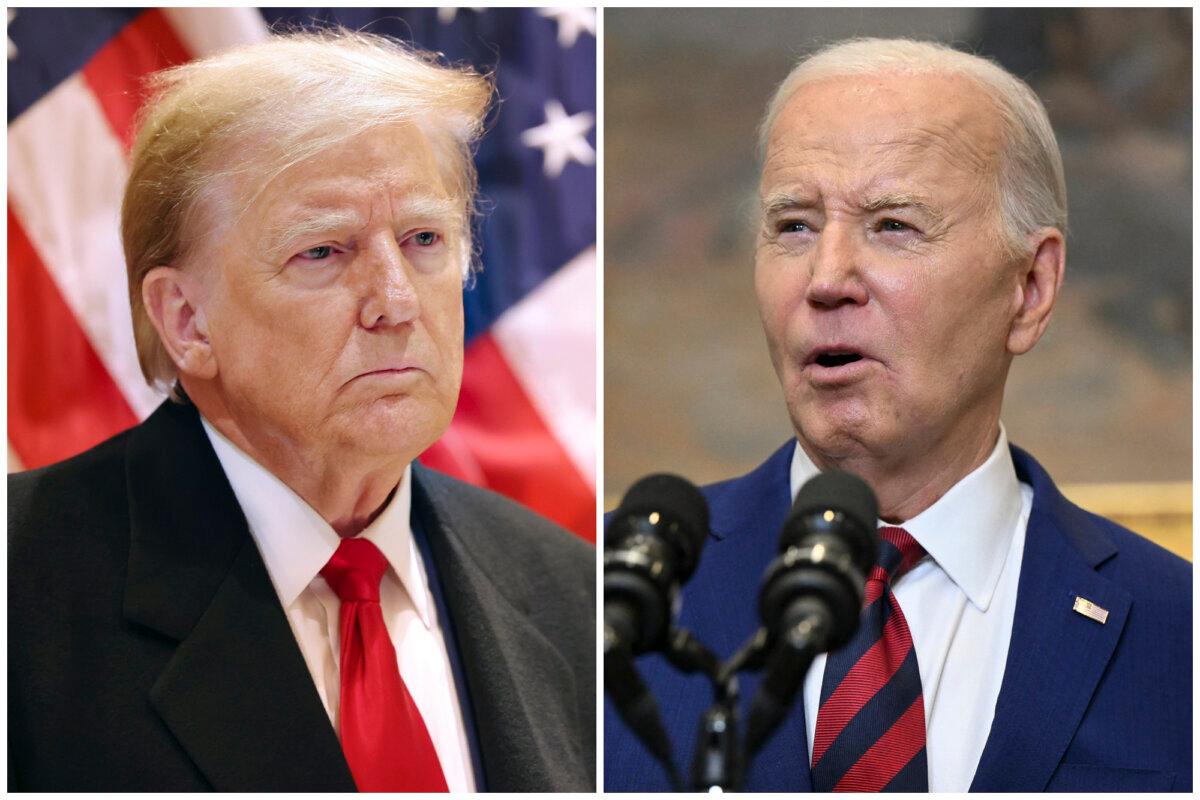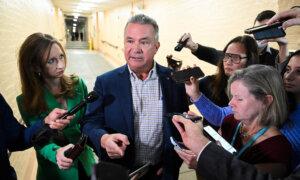Nebraska’s 2nd Congressional District could be an Electoral College maverick by giving its vote to Democrats for the third time in history in November.
Rep. Don Bacon (R-Neb.), the incumbent in Nebraska’s 2nd Congressional District, on May 14 secured the Republican nomination in a district that gave its Electoral College vote to President Joe Biden in 2020. Mr. Bacon prevailed over challenger Dan Frei, a businessman and former U.S. Air Force F-16 fighter pilot, by a vote of 18,406 to 7,804.
This came to 70.2 percent for Mr. Bacon and 29.8 percent for Mr. Frei. The businessman, who campaigned as a staunch conservative to the right of the incumbent, was endorsed by the state Republican party and by House Freedom Caucus chair Rep. Bob Good (R-Va.)
Election watchers say that the 2nd district vote could be the deciding factor in what is expected to be an extremely close presidential race.
Based on a New York Times/Siena College poll released on May 13, the day before the primary, President Biden may need those votes again in November.
Nebraska and Maine are the only states that award Electoral College votes proportionally. Under Nebraska election rules, the overall winner receives two of the state’s five electoral votes. One each of the remaining three votes is given to the winner of each of the state’s three congressional districts.
Nebraska began the practice in 1996. Since then, it has split its vote in 2008 and 2020. Both times, the Second District supported the Democrat candidate.
In the race for the White House, that vote could make all the difference.
Due to changes in Electoral College apportionment since 2020, even if former President Donald Trump were to win all the states he carried in 2020—which included four of Nebraska’s five electoral votes—and flip Arizona, Georgia, and Nevada, he would still be two votes shy of the 270 required to win the election.
If President Trump were to win all five of Nebraska’s votes, it would produce a 269–269 tie, leaving the outcome to the U.S. House to decide.
In 2020, the Second District was a lone blue spot in the Nebraskan sea of red, giving President Biden that vote. The New York Times/Siena College poll released Monday shows President Biden trailing in five states and tied in a sixth.

The pair are tied in Wisconsin with 38 percent each, the poll states.
Between April 28 and May 9, telephone pollsters questioned 4,097 registered voters about whom they would vote for if the election were held that day. The New York Times, The Philadelphia Inquirer, and Siena College conducted the telephone poll.
Nebraska Republicans, concerned that 2024 could be a replay of 2020, attempted to change Nebraska into a “winner-take-all” state. The unicameral Legislature considered the bill, pushed by Republican Gov. Jim Pillen, but did not pass the bill.
Mr. Bacon will face Democrat state Sen. Tony Vargas in November. Mr. Vargas has represented the state’s seventh legislative district, which includes Omaha, since 2017.
He narrowly beat Mr. Vargas in 2022, taking 51.3 percent of the vote.
Mr. Vargas was unopposed in his party’s primary election.
Incumbent Republican Sen. Deb Fischer easily secured the nomination over challenger Arron Kowalski who did practically no campaigning. Ms. Fischer took 79.1 percent of the vote for a total of 36,058 to Mr. Kowalski’s 20.5 percent, or 9,351.
Ms. Fischer, who has served in the U.S. Senate since 2013, will face independent Dan Osborn in the Nov. 5, 2024 general election.
Sen. Pete Ricketts (R-Neb) won the GOP nomination for the U.S. Senate with 75.1 percent of the vote over John Glenn Weaver’s 15.6 percent and Mac Stevens 8.3. They each received 41,553, 8,658 and 4,632 votes respectively.
Mr. Ricketts will go up against Democrat Preston Love, who was unopposed in his primary.
Samantha Flom contributed to this report.
Original News Source Link – Epoch Times
Running For Office? Conservative Campaign Consulting – Election Day Strategies!


